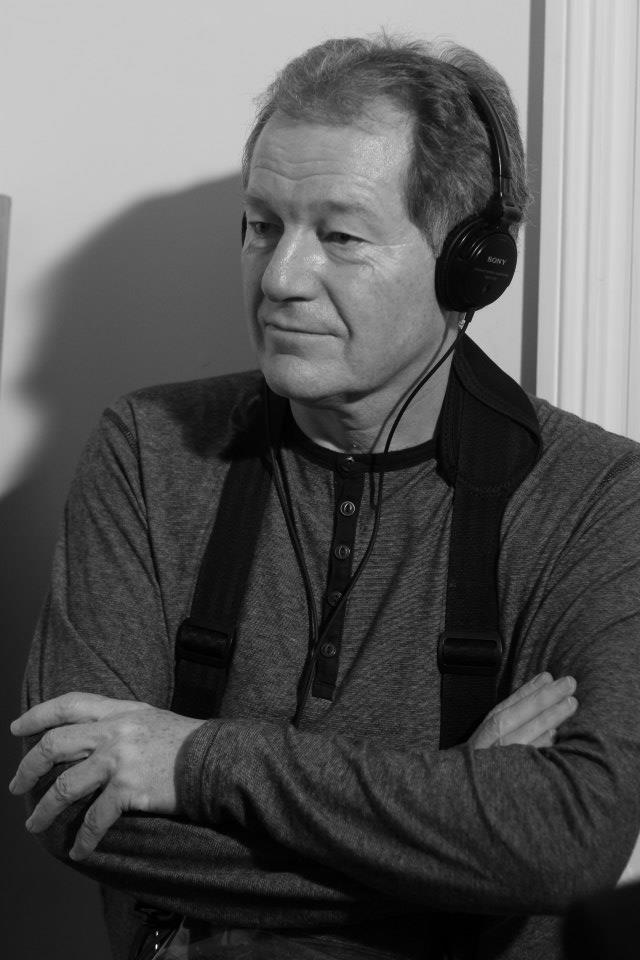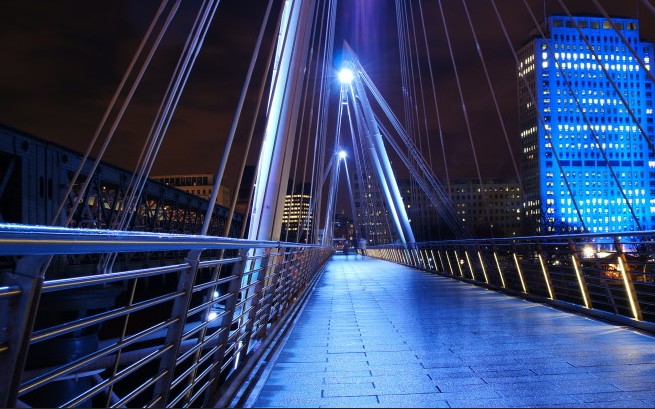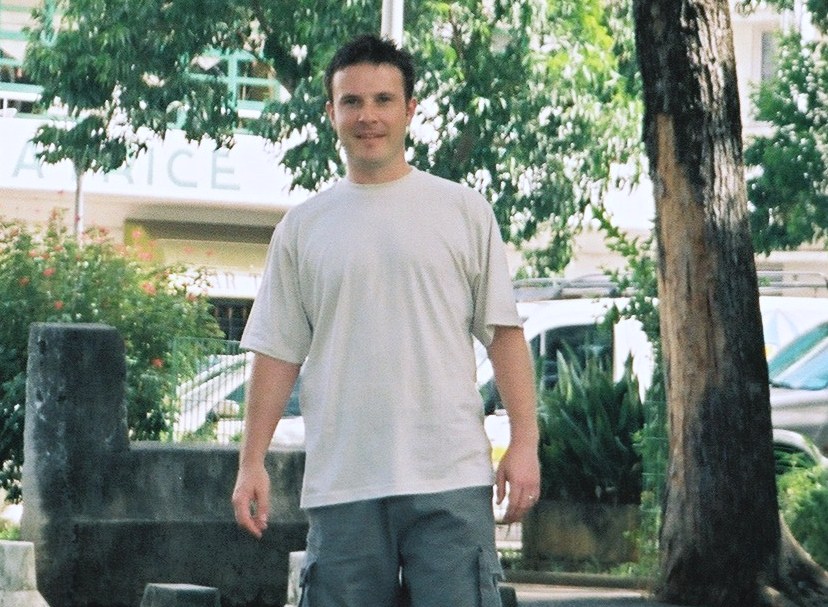ASK & DISCUSS
INDEXLegal issues: London/Borough permits for shooting.
10 years, 7 months ago - Rehan Wasti
Greetings Film Makers. (Apologies, long read ahead.)
I am heading a Film "club" at my local area Council operated Arts Centre. It is a hands-on "class" of sorts - where I teach people who are interested in our profession - how to make low-to-no budget digital film making.
These sessions are totally FREE for all to attend and learn from. It is basically geared towards teaching people life skills and bringing the isolated creative community together for various adventures.
Now, since we'd be promoting and shooting in the local area, the streets, parks, etc. I had a briefchat with the local Council and was told that they will NOT issue me a blanket "permission" for shoots - and would basically charge me £££ for EACH and every shot - whilst also tying my entire future into red-tape + eternal permissions, so on and so forth.
These are purely hands-on classes, where we all learn by doing. Nothing is pre-planned nor story-boarded - we talk about issues and then deal with them in practice. There is no way I can predict nor plan for the paperwork, permissions, nor delays for permits to come along.
And since I am already paying for the room hire for EACH session (twice a week), with not a penny in return, there is no way I can pay for each permit for each shot we eventually end up doing.
From what I have gleaned from the following websites:
http://www.cityoflondon.gov.uk/about-the-city/about-us/filming-in-the-city/Pages/default.aspx
and:
http://filmlondon.org.uk/get-permission-film
I gather that if we:
Use Handhelds (no tripods) and use a crew LESS that 5, and cause no public obstructions/panic, and NEVER use replicas/weapons/pyrotecnics/smoke to cause alarms (ie basically stealthy/touristy shoots is key) then we should be legally OK with any London shoots?
Am I correct in that assumption?
Since this will (hopefully) be a long term learning project - I'll need some legally sound advice so it doesn't retrospectively bite me with lawsuits/summons/etc.
Any advice would be appreciated in this matter (aside from guerilla tactics).
Many thanks.
Ray.
Only members can post or respond to topics. LOGIN
Not a member of SP? JOIN or FIND OUT MORE
10 years, 6 months ago - John Lubran
One can film freely from a public domain anything or anybody even if that thing or person is on private domain. It's a pretty sacred right. There just a couple of caveats however, to do with defamation, unreasonable use of technology intended to defeat what would otherwise be deemed adequate steps to defend privacy, any action intended to assist a crime and any lawful assertion of Duress of Circumstances affecting safety and national security. (The Common Law defense relied upon by the State in its use of powers in order to breach or suspend the supremacy of Common Law rights and as can be used by anyone)
Cap doffers need not apply.
10 years, 7 months ago - Paddy Robinson-Griffin
The core of this will be insurance and liability - get that in place (you need to do this anyway, it's not expensive) and permissions will be a lot easier. There are guidelines and rules to follow, they're there for a reason - for instance shooting on the streets my crews always have hi-viz, spotters, walkie talkies, etc., and this reassures film offices, councils, police, everybody that we're not chancers likely to cause a problem.
The boroughs are all separate, so you need to talk to the ones you want. Their first duty is always to taxpayers in their borough, but they're usually very accommodating if you ask. They want each shoot logged so they know who's where and when, and that your blanket permission doesn't end up creating a muddy legal mess when a studio asks for the same thing. Logistics and legal compliance is very much a part of filmmaking.
I've never been charged by a borough, although I've had to pay for police presence before. They generally don't want to stop you from doing things, but do want to be sure they're not going to get complaints or have accidents or damages. If your film club is hiring a room, you already know dates and rough locations.
The best solution is to not shoot on council property if they won't cooperate. There are plenty of private spaces in London, ask one of them for help. Parks - the royal parks are a different set of permissions, as again are the tubes and trains.
You could try to wing it. You'll probably get away with it, but do you want to be known as a chancer? And if there's an accident (God forbid, but it certainly can happen) it'll certainly come out if you're shooting uninsured, without permission, with a bunch of kids/young adults.
10 years, 6 months ago - Rehan Wasti
A million thanks for all the answers and insightful advice, my friends.
If anyone ever needs a helping hand with any shoots/edits/etc.. give me a shout.
Regards.
Ray.
10 years, 7 months ago - Joe Conneely
I cannot add much but being fully prepared when you approach the relevant Council Office (who I often find great) will make a favourable impression I have found - relying on them to think of and fix all your problems irritates some sadly and makes it easies for them to say "no". Fees vary also but under current local government financial constraints not unexpected one suspects.
Two simple thoughts - many people head off into issues and do not think how to avoid them in the first place. Using private land or off public road areas will save a lot of hassle and often give you a more controlled/quieter location to use (filmmaking is often about the art of compromise).
Also "guerilla filmmaking" too often becomes the same as "illegal" - try shooting on TfL property and you will soon find out to your cost!
10 years, 7 months ago - Daniel Cormack
The borough filming offices are generally very good, but I too have encountered the occasional borough who seem to do everything they can to obstruct even small shoots like yours, for no apparent reason. Are you sure you got it across that you're not a business and are doing this unpaid as a public benefit? Maybe they got the jitters because you didn't specify exactly where you would be shooting?
Perhaps there is a borough that is nearby who will be more accomodating?
You don't need permission from councils to film on public land and highways. The issues that come up here are whether you are causing an obstruction or nuisance and also that you are not endangering anyone's health and safety. However, you do need to be careful because some public spaces, I'm thinking in particular of parks, are actually land that is owned by the council or other public body which you would need permission for.
As for insurance, you are only obliged to have public and employers liability insurance if you are an employer. You'd have to seek advice as to whether you do require it as I'm not a lawyer. Insurance is there to protect you as it may well be that if someone is injured or property damaged they or an insurance company may try to recover damages from you and without insurance you could be taken to the cleaners.
10 years, 6 months ago - George Brian Glennon
We recently shot in central London, in the "Government zone" no less. It can be very expensive to do it right as we did. Permits (Including rain dates) /Police notifications/the proper insurance coverage/neighborhood resident notifications if necessary.
For anyone spending even a few thousand pounds on the budget this all adds up to not being stopped on the day or night.
The rescheduling of many many people is in itself a cost that can be avoided by doing it right.
I always show up at the local police station before hand to introduce myself and let them know face to face what is going on and when. I also introduce myself to any police I see in the area while doing recce's and let them know filming will be going on there ...time date permit number if they ask etc. They are very appreciative of this in 2015. If the Met see a bunch of people with equipment on a major bridge at 2 AM they have the right to get nervous.
Its always better to do it right if you can.
10 years, 7 months ago - Tony Oldham
There are no specific laws set in stone, really there are not. Filming without permits on public land is basically down to the mood of any local law enforcement. They can move you on for obstruction etc, but there really is to my knowledge no law as it is otherwise a serious breach of our freedoms; i.e. when did you last see the police advising tourists they must put away there cameras.
For 'commercial purposes', there are adopted regulations which you have gained from Film London etc. If a tripod is used, it again comes down to the law officers in question and whether they deem it a true obstruction.
Filming on the South Bank for example does tend to bring in the security guards as it is operated privately, however, police officers have always tended to not take issue or care.
Insurances are wise in any event especially long term.
10 years, 7 months ago - John Lubran
The issue of the exercise of power and authority on these islands is, for a growing number of us, the biggest socio-political structural consideration we face, and it has little to do with any of the party politics currently on offer (doesn't matter who you vote for, the government, their familiars and placemen always win). So this issue is interesting for a whole bunch of reasons that extend beyond the specifics of film making.
Whether or not these so called 'By-Laws' and the presumed authority of a whole multitude of statutory powers, as assumed by government and in this case local 'corporations' (for that is exactly what 'local authorities ‘are, no less, no more) are actually 'Lawful' is the true essence of the matter. The mere fact of the previously ignorant acquiescence of former generations is by no means evidence of that legitimacy; indeed the real evidence suggests that a massive tower of Babel has been built upon the shaky foundations of a baseless, false and unconstitutional paradigm. It’s the difference between ‘legal’ and lawful’ the former is based on statute legislation and the latter upon actual law (being Constitutional Instruments such as the 1688 Declaration of Rights and the ultimately unassailable supremacy of our most sacred Common Law constitutional jurisdiction), which cannot, as erroneously believed by many and as disgracefully clung to by powerful elites, be altered or created by any statute legislation (an Act of Parliament or Bill is not and never has been law per se and neither have they yet committed the treason of actually referring to any Act as such in writing within any Act)
None of this is arcane or academically challengeable beyond rhetoric, even though it seems to be hidden in plain sight. According to that most definitive authority, ‘Halsbury’s Laws of England’, such is defined by the difference between a Court of Law and those other places, which include almost the entirety of civil law as regulated by the County Court System under the Admiralty Division, currently masquerading as courts of law, which Halsbury’s clarifies, with the most astonishing candour, as being “unlawful administrative hearings”. Orwellian double speak is perverse and pervasive. One really could not make it up!
So the clear inference is, with regards to Ray’s post, that councils only have the authority given them by your actual and certified consent, which essentially would be a contractual arrangement, without such they have no authority, and that’s the real and actual law! Significantly, councils do not own the public domain that they claim they do; they merely maintain it by our consent with no more authority than your window cleaner has over your windows. For now however, few of us are able to rise to challenging their presumption with much effect because their placemen and familiars are well entrenched behind a battlement of legal fictions and procedural obfuscation, ultimately relying upon terrible and even deadly force instead of argument. However, being that there’s a herd of proverbial elephants in the room and given the recent empowerment of truly democratised information and an increasingly enlightened and righteously disgusted sector of the community, it’s the real constitutional crisis that won’t be swept under the carpet of their cultivated aplomb for very much longer.
10 years, 7 months ago - John Lubran
Despite untruthful claims to the contrary, Councils don't own the public domains they manage nor do they have a contractual relationship with the public who do own it, other than by consent. That’s the actual Law of the Land on these islands, even if it has been perverted by what amounts to administrative tyranny and procedural corruption.
These quasi authorities and also the police often rely upon the assertion of obstruction as justification for interfering with people even to the point of arrest. However for a charge of obstruction to be proven the onus is on the accuser to prove that an actual rather than a theoretical obstruction has occurred, including any spurious and unenforceable by-law about using a tripod on the pavement. Other people must be obstructed to a degree beyond merely having to walk around the tripod. Lower courts such as magistrates and county courts tend to follow the entirely unlawful assertions of any quasi authority making an assertion but higher courts are no so acquiescent and in such places the defense has the upper hand to the extent that, and this has twice been my own personal experience, the quasi authorities won't press their case in a real court of law without very strong evidence that an 'actual' obstruction, as defined by English Language, has occurred. Defense witnesses’ always have superiority over prosecution witnesses where unequal provenance cannot be proven.
Whilst the entirety of common rights in the public domain does not extend to Royal Parks and Crown property it most certainly does, despite the despotic enforcement of unlawful limitations, to the railways, the tube and any other publicly owned domain where the Common Law defense of Duress of Circumstance, such as safety and national security cannot be applied. Having considered the issue of public domain however the law does not allow chaotic or antisocial behavior nor does it prevent those who are responsible for its management and good order from asserting any proper and reasonable expedience arising from any duress of circumstance. Liability for damage or harm to others is always the lawful responsibility of the perpetrator. Our Constitution and Common Law provides everything needed for a well regulated society without the sort of over overbearing tyranny currently growing ever more pervasive by unlawful administrative expediencies and the self interests of elites. It's up to people and particularly film makers and documentarionists to challenge such evils wherever they can.
Knee jerk cap doffers need not apply!
10 years, 7 months ago - Paddy Robinson-Griffin
Either of those scenarios should be absolutely fine :)
The public liability insurance is what protects you from silly accidents like someone tripping on a tripod leg, and you really should have it no matter what, whenever you're dealing with people, private and public property, etc. Most boroughs and many location places will want to see £5M of cover, but it's cheap - I pay £120/year including £10k of kit insurance on and off my premises (for stuff getting nicked, my own, or rented), and that's through Hiscox for Business, one of the best insurance companies for reliability and service. You can also try Essex Insurance Brokers who are well spoken of here, and Towergate Camerasure are with a call too - they're specifically film industry insurers so understand your needs.
10 years, 7 months ago - Rehan Wasti
Many thanks for all your input. It is much appreciated. :)
I shall look into getting a liability insurance for "any eventuality". Can anyone here recommend someone RELIABLE they have used for an annual cover? Preferable on the affordable side. :)
Two further questions regarding private land:
1. If I park my tripod on my house's driveway (not the road - but private land) and POINT it towards the road + other housing (ie council owned land) - is that considered legally OK? Or can I not even POINT the camera at council lands?
2. Similarly, if I hppen to capture a prominent building or achitecture (eg a church/St.Pauls/the Gherkin/etc) whilst filming on any street - can the building owners sue me for showing thier property without permission?
(ie Assuming I don't "feature" it as my main backdrop - but just a walk-by/drive-by shot. ) I was once told that "anything that is publically visible to a bystander" is considered public domain - and thus can be used.
Many thanks.







